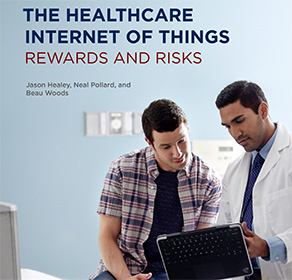The Internet of Things of digital, networked technology is quickly moving to the forefront of society, the global economy, and the human experience.
Individuals wear networked devices to learn more about themselves, their diet, their exercise regimen, and their vital signs. Doctors can adjust and optimize implanted medical devices, such as pacemakers, quickly and accurately—and often with no need for intrusive medical procedures. The rewards of networked healthcare come with overlapping areas of concern that have to address to fully unlock the potential of these technologies.
In The Healthcare Internet of Things: Rewards and Risks, a collaboration between Intel Security and Atlantic Council’s Cyber Statecraft Initiative at the Brent Scowcroft Center on International Security, the report’s authors—Jason Healey, Neal Pollard, and Beau Woods—draw attention to the delicate balance between the promise of a new age of technology and society’s ability to secure the technological and communications foundations of these innovative devices.
Building the security into devices from the outset, rather than as an afterthought will help foster innovation while minimizing security risks. Deepening the private-private and public-private collaboration will be critical, and offering a voice in the debate about these devices to the public, especially patients and their families will ensure balance among effectiveness, usability, and security when the device is implemented and operated.
